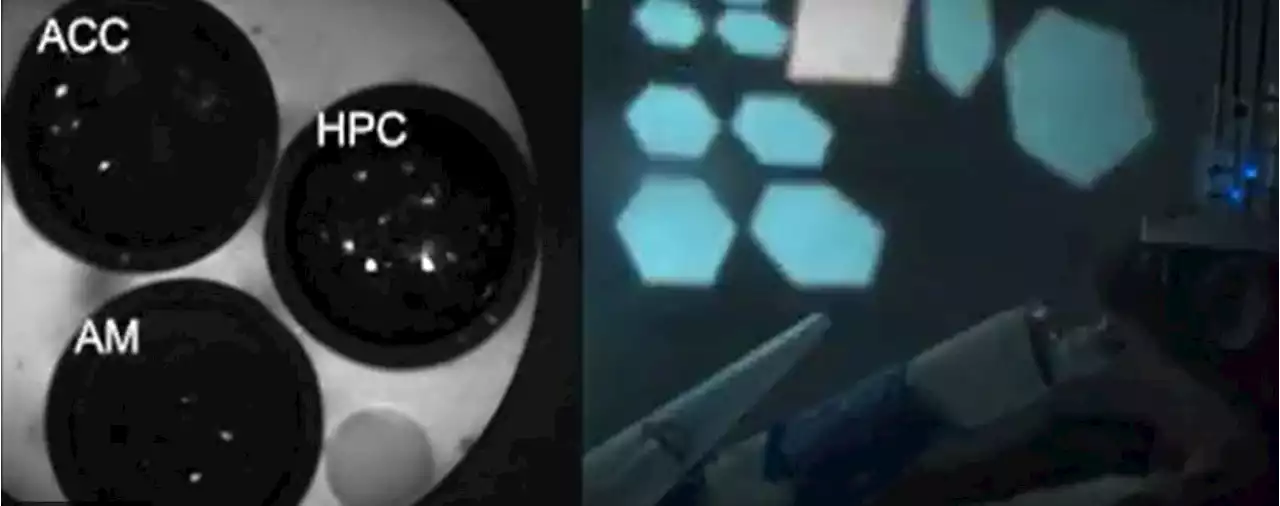Patients who undergo gastric bypass surgeries must be committed to making permeant lifestyle changes or face serious health issues.
A newly developed weight loss injection could offer the benefits of risky slimming surgeries without going under the knife.
Scientists believe their achievement will help offer a long term weight loss solution amid an ever growing obesity problem. Robert Doyle, Ph.D., one of the two principal investigators on the project, along with Christian Roth, M.D. said: “Obesity and diabetes were the pandemic before the COVID-19 pandemic.Gastric bypass procedures, collectively as bariatric surgery, shrink a patient's stomach size through means like staples, bands or partial removal to reduce how much they can eat.
Weight loss injections change the guts' secretion levels of hormones including glucagon-like peptide-1 and peptide YY . These signal fullness, curb appetitive and normalise blood sugar. To remedy this, researchers have set out to develop treatments that interact with more than one type of gut hormone receptor, thus reducing negative side effects.
Compared to rats and shrews that were given liraglutide, those that were injected with GEP44 displayed no such side effects. Professor Doyle suggests that activating multiple receptors may cancel out signals that drives those symptoms.
Österreich Neuesten Nachrichten, Österreich Schlagzeilen
Similar News:Sie können auch ähnliche Nachrichten wie diese lesen, die wir aus anderen Nachrichtenquellen gesammelt haben.
 A low BUN/creatinine ratio predicts histologically confirmed acute interstitial nephritis - BMC NephrologyIntroduction In hospitalized patients with acute renal injury (AKI), acute tubulointerstitial nephritis (AIN) constitutes one of the leading etiologies. The objective of this study was to identify clinical and biochemical variables in patients with AKI associated with kidney biopsy-confirmed AIN. Methods For our prospective study, we recruited hospitalized patients aged 18 years and older who were diagnosed with AKI based on biochemical criteria. Prior to enrollment, each patient was assessed with a complete metabolic panel and a kidney biopsy. Results The study consisted of 42 patients (with a mean age of 45 years) and equal numbers of male and female patients. Diabetes and hypertension were the main comorbidities. Nineteen patients had histological findings consistent with AIN. There was a correlation between histology and the BUN/creatinine ratio (BCR) (r = -0.57, p = 0.001). The optimal Youden point for classifying AIN via a receiver operating characteristic (ROC) curve analysis was a BCR ≤ 12 (AUC = 0.73, p = 0.024). Additionally, in diagnosing AIN, BCR had a sensitivity of 76%, a specificity of 81%, a positive predictive value of 81%, a negative predictive value of 76%, and OR of 14 (95% CI = 2.6 to 75.7, p = 0.021). In the multivariable analysis, BCR was the sole variable associated with AIN. Conclusion A BCR ≤ 12 identifies AIN in patients with AKI. This study is the first to prospectively assess the relationship between renal biopsy results and BCR.
A low BUN/creatinine ratio predicts histologically confirmed acute interstitial nephritis - BMC NephrologyIntroduction In hospitalized patients with acute renal injury (AKI), acute tubulointerstitial nephritis (AIN) constitutes one of the leading etiologies. The objective of this study was to identify clinical and biochemical variables in patients with AKI associated with kidney biopsy-confirmed AIN. Methods For our prospective study, we recruited hospitalized patients aged 18 years and older who were diagnosed with AKI based on biochemical criteria. Prior to enrollment, each patient was assessed with a complete metabolic panel and a kidney biopsy. Results The study consisted of 42 patients (with a mean age of 45 years) and equal numbers of male and female patients. Diabetes and hypertension were the main comorbidities. Nineteen patients had histological findings consistent with AIN. There was a correlation between histology and the BUN/creatinine ratio (BCR) (r = -0.57, p = 0.001). The optimal Youden point for classifying AIN via a receiver operating characteristic (ROC) curve analysis was a BCR ≤ 12 (AUC = 0.73, p = 0.024). Additionally, in diagnosing AIN, BCR had a sensitivity of 76%, a specificity of 81%, a positive predictive value of 81%, a negative predictive value of 76%, and OR of 14 (95% CI = 2.6 to 75.7, p = 0.021). In the multivariable analysis, BCR was the sole variable associated with AIN. Conclusion A BCR ≤ 12 identifies AIN in patients with AKI. This study is the first to prospectively assess the relationship between renal biopsy results and BCR.
Weiterlesen »
 Scientists identify cellular signaling pathway as key player in metastasisA team of scientists at the Sloan Kettering Institute have identified the STING cellular signaling pathway as a key player in keeping dormant cancer cells from progressing into aggressive tumors months, or even years, after they've escaped from a primary tumor.
Scientists identify cellular signaling pathway as key player in metastasisA team of scientists at the Sloan Kettering Institute have identified the STING cellular signaling pathway as a key player in keeping dormant cancer cells from progressing into aggressive tumors months, or even years, after they've escaped from a primary tumor.
Weiterlesen »
 Scientists discover brain region linking short-term to long-term memoryWe have a pretty good idea of where memory starts and ends—short-term memories form in the hippocampus and, if the situation calls for it, stabilize into long-term memories in the cortex. But what happens along the winding path between short-term to long-term memory is a mystery.
Scientists discover brain region linking short-term to long-term memoryWe have a pretty good idea of where memory starts and ends—short-term memories form in the hippocampus and, if the situation calls for it, stabilize into long-term memories in the cortex. But what happens along the winding path between short-term to long-term memory is a mystery.
Weiterlesen »
 Office canteens could be to blame for young people becoming obese, scientists fearCambridge University researchers are trying to establish why adolescents' diet changes so much between leaving school and starting either work or higher education.
Office canteens could be to blame for young people becoming obese, scientists fearCambridge University researchers are trying to establish why adolescents' diet changes so much between leaving school and starting either work or higher education.
Weiterlesen »
 'Convincing evidence': Scientists reveal cause of child hepatitis outbreakTHERE is 'convincing evidence' to indicate that a mysterious outbreak of severe hepatitis which sickened hundreds of young children…
'Convincing evidence': Scientists reveal cause of child hepatitis outbreakTHERE is 'convincing evidence' to indicate that a mysterious outbreak of severe hepatitis which sickened hundreds of young children…
Weiterlesen »
